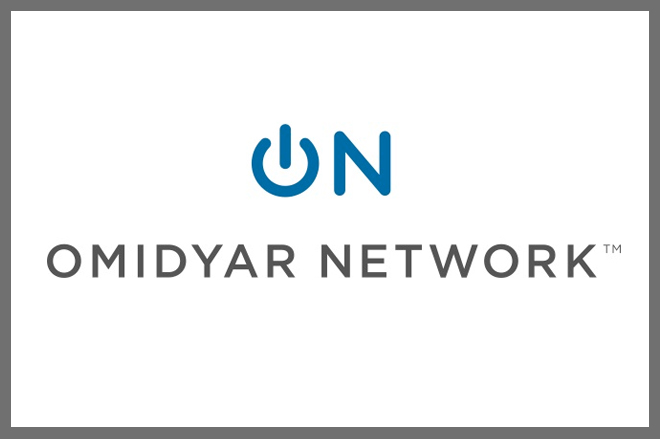The Software Nigeria Lion Has Roared
SOFTWARE NIGERIA & LOCAL CONTENT ACT 2010
Suppressed Development and Under-development of Indigenous Software:
The Nigerian Software Lion has roared in an effort to occupy the International software space – this has come to pass. Engr. Chijioke Simeon Agu, a Fellow of the Nigeria Computer society and Past President of the Institute of Software Practitioners of Nigeria (ISPON) accomplished the feat before his dawn

It will be recalled that many decades ago – 1980’s, Tara Systems (Nig) Limited emerged as one of the first Oracle-based Application Developers in the National and International circuit. Indeed, the first known digital signature ported into Oracle Database was said to have been developed in Nigeria by Tara. Not only that, the Oracle-based Application software developed by Tara was exported abroad. The Nigeria Local Content Act 2010 was enacted in April, 2010 as the quantum of composite value added or created in the Nigerian economy by a systematic development of capacity and capabilities through the deliberate utilization of Nigerian human, material and intellectual resources and services in the Nigerian economy in order to stimulate growth of indigenous capacity. National Software initiatives constitute a significant part of the content under the act.
Also the Federal Government, through its Circular Reference No. SGF/OP/I/S.3/VII/795 of 2006 mandated all Ministries, Departments and Agencies to operate strictly on the patronage of Nigerian Developed Computer Software and services. The Nigerian Oil and Gas Industry Content Act 2010 (‘the Act’) was signed into law on 22 April 2010. With effect from this date, the Act is expected to be applicable to all matters pertaining to Nigerian content in respect of all operations or transactions carried out in or connected with the Nigerian oil and gas industry. Meanwhile, comparative studies have shown that by extension, Information and Communications Technology and Software in particular represent the core operation and transactions processes referred to in the Act. Nigeria can create at least 1million jobs in the software Sector within 24 months and earn an estimated $10billion USD annually after a critical incubation program of 3-5years.
The Act is designed to give the force of law to the Nigerian Content Policy, the objective of which is to increase the quantum of composite value added to or created in the Nigerian economy, through a systematic development of capacity and capabilities for the deliberate utilisation of Nigerian human and material resources and services. From its inception in early 2000, the Nigerian Content Policy envisioned by the Nigerian National Petroleum Corporation served as the basis for measuring and ensuring local participation and job creation for Nigerians in the oil and gas industry. In pursuit of global quality standards, the Institute of Software Practitioners of Nigeria (ISPON) in April 2012 on behalf of Software Nigeria received an International Quality (QC 100) Award conferred on her by Arch of Europe at the Intercontinental Hotel in Frankfurt – Germany.
In light of all the above, the National Executive Council (NEC) of the Institute of Software Practitioners of Nigeria (ISPON) has continuously advocated that Software operational and transaction related information and data from organizations referenced in the Act, including Banking and Financial Institutions on the level of compliance with the Local Content Act 2010 with respect to the application of indigenous software. This is informed by the fact that government Transformation Agenda may not be effectively implemented unless indigenous Software content and services delivery is made a very high priority.
The senior advocate of local content in Nigeria Software space is undoubtedly, Engr. Chijioke Simeon Agu, who recently passed on to higher glory. He was the founding President of the Institute of Software Practitioners of Nigeria (ISPON), a distinguished IT practitioner, Software Industry Pioneer and Fellow of the Nigeria Computer Society. He left many legacies behind. But the core focus of this write-up is how conscious is the nation on the critical and strategic imperatives of indigenous and global Software for national survivability? Like Hussein Bolt, he has beaten all known records in the Software Ecosystem in Nigeria. He laid the foundation for the development of software Nigeria with his 10 point agenda to the Federal Government which led to the establishment of the National Software Development Initiative is 2005.
For the records, Engr Simeon Agu was the Great Lion of ICT-Nigeria, at whose words alone awakened an entire IT industry; whose presence inspired confidence in a fledgling industry to go forth and claim its due; a fiercely loyal friend and a competitor respected by all. His roar will be missed by us all, as will his sure guidance and sagacity.
He was the founder and Chairman of Computer Systems Associates (Nigeria) Limited. A 1970 Electrical Engineering graduate with Postgraduate Diploma in Accounting and Finance. He started his computing career with Shell Petroleum Development Company in 1971. Later he moved to the National Electric Power Authority in 1977 as Manager Systems Development and eventually rose to become the Director of Computer Services. Simeon Agu metamorphosed the aforementioned Computer Systems Associates (CSA) to Neptune Software, putting Neptune on the platform to thrive globally
He is a member of the Computer Professionals Registration Council of Nigeria, and for several years served on the National Advisory Committee on Statistics among other National and International Organisations on Information Technology. Neptune Software Plc : Neptune has earned a strong reputation and built a rich history in delivering mission-critical core systems to the banking and financial services sector, end-to-end solutions to over 80 financial services institutions globally. Neptune has the proven experience needed to meet the requirements of internationally recognised banking practice. Rubikon is a next-generation banking solution which delivers an industry specific, business-oriented collaborative framework for financial services.
With its unique Financial Services Oriented Architecture (FSOA) which facilitates rapid incremental deployment. Rubikon provides a universal core banking solution on a special purpose application utilizing one or more of the product’s modules to deliver new products or services to market or streamlining currently inefficient or high-risk processes. The solution is ideal for ILFCO’s planned expansion going forward. Rubikon ships with an enterprise service bus and orchestration layer providing a superb platform for a growing bank. Neptune congratulates ILFCO on the splendid team effort that contributed to the success of this project.
Rubikon: Rubikon is a product of the new age in software. It is written in JAVA J2EE and incorporates an enterprise service bus and orchestration layer as standard. It is an SOA solution providing real time online capability and has complete availability 24×7. Rubikon has no batch processing and its end of day accruals can be triggered automatically, requiring minimal technical involvement.
Due to its web based architecture it is extremely stable and scaleable. Recently, Rubikon’s Treasury module has been recognised separately for exactly these qualities. With a robust and capable architecture Rubikon is rapidly demostrating product leadership characteristics and provides an outstanding ROI for any banking institution in an increasingly harsh and competitive environment.
Lack of incentive and policy support for the software industry has driven patriotic Agu to establish this Neptune outside Nigeria. Unknown to many, Engr. Agu established Neptune Financial Software Pvt. Ltd. in Chennai, India – the first Nigerian Company to do so. The new wholly owned subsidiary is the focal point of Neptune’s strategy to expand its own Rubikon development capacity, provide an international support centre, as well as sales and pre-sales capacity for the Asia region. The new operation will include a strong team of 60 developers, many of whom were transferred over to Neptune from Cordiant Technologies as part of the conclusion of the BOT (build, operate, transfer) agreement that had previously been in place.
Neptune’s global expansion is successfully reaching out into Asia, with a number of wins in the region in 2009. It is therefore appropriate timing to launch Neptune Financial Software Pvt. Ltd. in Chennai, India, where additional resources for development, implementation and sales will be recruited. According to Simeon Agu, Chairman and CEO, ‘Asia is proving to provide fertile ground for Rubikon growth, with a number of wins in the region and a healthy pipeline, therefore reinforcing operations to cover the territory is a natural step for us to take. We have big plans for Rubikon. Chennai’s location makes it a perfect strategic hub for development, support and sales.’
Software Nigeria has proven that the survival strategy for the future of Nigeria resides in software innovation, creativity, incubation, development and patronage by government, private sector business and our people. Local Content Act may not fulfill its objectives if Nigeria cannot deliver all her software solutions in the Oil, Gas and banking industry. And export to the International Market. Engr. Chijioke Simeon Agu has demonstrated without any fear of contradiction that it is possible.




